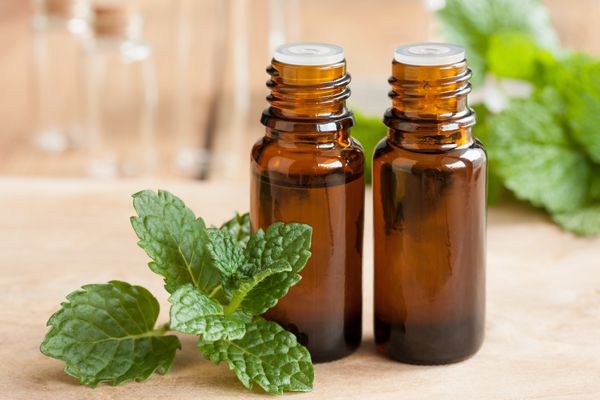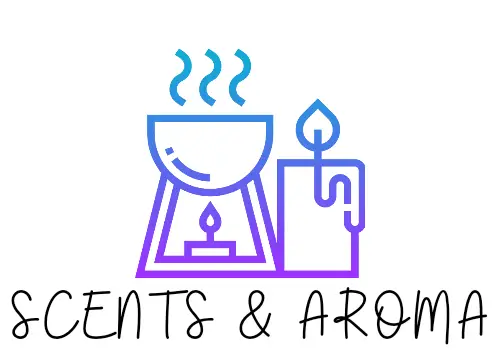Some essential oils can be used to relieve the symptoms of hay fever (allergic rhinitis). They have antihistamine and anti-inflammatory properties that would help in reducing inflammation and treating symptoms of the allergy. In this article, we will discuss the following:
- Can essential oils help with hay fever?
- The best essential oils to use for hay fever
- How do essential oils help hay fever symptoms?
- How to use essential oils for hay fever.

Can Essential Oils Help with Hay Fever?
Yes, essential oils can help with hay fever. Some essential oils possess antihistamine and anti-inflammatory properties that can aid in relieving and managing the symptoms of hay fever when used alone, or used to support over-the-counter antihistamine drugs.
Hay fever is also referred to as allergic rhinitis, which is a more accurate name for seasonal allergy. It is caused by pollens, dust, and pet dander getting into the eyes, nose, or mouth, and inflaming the mucus membrane.
Hay fever causes cold-like symptoms like runny nose, itchy eyes, watery eyes, sneezing, swollen eyes, nasal congestion, etc. These symptoms can be soothed using some essential oils or a blend of essential oils known to reduce inflammation and relieve allergic reactions.
What are the Best Essential Oils for Hay Fever?
Not all essential oils can be used for hay fever so you need to choose the right essential oils. Here is a list of essential oils to use for hay fever:
- Eucalyptus essential oil
- Roman Chamomile essential oil
- Peppermint essential oil
- Lemon essential oil
- Lavender essential oil
- Tea tree essential oil
- Rosemary essential oil.
- Frankincense essential oil

How do Essential Oils Help Hay Fever Symptoms?
- Eucalyptus Essential Oil: Eucalyptus oil is anti-inflammatory so it reduces inflammation caused by allergies. It also helps with congestion. The cooling effect it produces when inhaled helps to ease breathing.
- Roman Chamomile Essential Oil: Roman chamomile is anti-inflammatory and an antihistamine. Using this oil can help soothe irritated sinuses and clean up mucus thereby clearing a blocked nose. It is also great because it can be used for children, and can help you sleep well.
- Peppermint Essential Oil: Peppermint oil has a soothing effect. Its high mint content helps in clearing mucus and relieving stuffy nose. Peppermint also reduces inflammation and eases breathing. It has also been shown to reduce itching thus, it helps reduce itchy throat. Just be aware that peppermint essential oils is toxic to dogs.
- Lemon Essential Oil: Lemon is a citrus oil that has anti-inflammatory properties. It can reduce congestion and clear sinuses. Also, lemon oil is anti-bacterial and when sprayed in the room, it will disinfect the room and clear pollen that causes hay fever. However, when applied topically, lemon can make your skin sensitive to the sun so don’t go out in the sun if you use them. Just like peppermint oil, lemon citrus oil is toxic to dogs.
- Lavender Essential Oil: Lavender oil has an antihistamine effect. It helps in relieving symptoms of hay fever like runny nose, and itchy eyes. It also reduces swelling and redness and alleviates irritation and mucus build-up. Lavender is also a great essential oil to use if you need help falling into a deep and relaxing sleep.
- Tea Tree Essential Oil: Tea tree oil has anti-inflammatory effects so it reduces sinus swelling. Spraying tea tree oil disinfects the air and destroys allergy triggers like molds.
- Rosemary Essential Oil: Rosemary oil has mucolytic properties and can help reduce nasal congestion by clearing mucus. It also helps in reducing the body’s response to pollen that can cause hay fever.
- Frankincense Essential Oil: Frankincense oil is anti-inflammatory. It clears stuffiness and reduces symptoms of hay fever. It also acts as a disinfectant to get rid of dust mites and pet dander.
However, you should note that lemon and rosemary oil enhances alertness and focus. It’s best to use them during the day rather than at night because they will prevent you from sleeping. Other essential oils like lavender and chamomile help the body relax.
Also, make sure you take precautions when using essential oils. They can cause irritation for some people, especially children, pregnant women, and people with breathing problems. It’s best to seek the doctor’s advice before using them for hay fever.
How Do I Use Essential Oils for Hay Fever?
Essential oils can be used in different ways to treat hay fever. You can use them through diffusion, spraying, nasal inhalers, and steam inhalation.
- Diffusion: You can use essential oils in your oil diffuser as a method of aromatherapy. Diffusing essential oils into the air using oil diffusers is an effective method for treating hay fever. You can mix two to five drops of one or more of these essential oils in the diffuser. However, make sure the oils used do not have counter effects.
- Oil Sprays: Dilute the essential oil with water in a spray bottle and spray it in the room. This works best when trying to destroy pollen in the air to prevent further worsening of hay fever.
- Nasal Inhalers: To clear a stuffy nose, you can add a drop of diluted essential oil to your nasal inhalers. Better still, you can buy essential oil nasal inhalers for nasal congestion. You can also inhale them directly from the bottle or by adding a drop to your handkerchief or on your palm. Do not ingest essential oils.
- Steam Inhalation: Steam inhalation is another method for applying essential oils. Add some drops of essential oil or oils to boiled steaming water and inhale the steam. This should help in relieving nasal congestion and clearing mucus.
- Topical Application: An effective way to use essential oil is by applying them topically. You can dilute them with carrier oils like jojoba oil, coconut oil, and almond oil and rub them over your chest for relief. Do a patch test before using essential oils to ensure it’s alright to use.
Conclusion
Hay fever is a seasonal allergy that can significantly affect your health and disrupt your daily activities. Some essential oils like lavender oil, eucalyptus oil, lemon oil, chamomile oil, and tea tree oil have anti-inflammatory, antihistamine, and antimicrobial properties that can help in relieving the symptoms of hay fever. However, it is best to use them alongside antihistamine drugs for better results. Also, make sure you seek your doctor’s advice before use.
- Can You Put Perfume In A Humidifier? (Read First) - September 17, 2022
- Can You Put Essential Oil In A Steam Mop? (Safety Advice) - September 17, 2022
- How To Make Lavender Oil At Home ( Candles And Diffusers) - September 9, 2022
